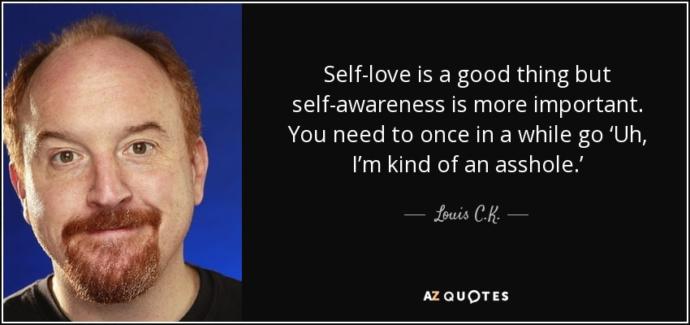The key to achieving better outcomes comes from calmly asking ourselves how we can most effectively make things better, of applying level-headed thought to choose the best course of action.
This is rather stating the obvious, as one who thinks about the best course of action clearly has an edge over one who exercises no thought on this subject whatsoever.

Not So Simple
As incredibly simple as that sounds, it's far easier said than done. Most of us will fail to do this quite often. The weaker among us will fail to do this in the most critical moments when it is most necessary.
We're creatures with all kinds of impulses motivating our behavior from love to anger, sadness, lust, fear, jealousy, greed, pride, insecurity, depression, addiction, hunger, thirst, superstition, guilt, pain, sickness, hatred, and so forth.
All of these motivators, when we fail to discipline ourselves from letting them take over our actions, can prevent us from asking that simple yet critical question: "What is the best course of action?"
Self-Awareness
For those who want to be able to ask this question more often and with the most productive frame of mind, all of us experience a different array and intensity of impulses. They vary from individual to individual.
The first step is to simply pay attention to our impulses. Pay attention to how we go about our daily lives. Take note of what types of impulses and emotions arise as we face various situations.
This is simply a mental exercise, but try to become an external observer of yourself. Pay especially close attention to your mental state and your chosen course of action when you're feeling the strongest of impulses, the strongest of urges.
Once observing your tendencies here, ask yourself:
Between feeling this strong urge and choosing my course of action, did I really ask myself, in a clear state of mind, what the best course of action would be?
Don't be ashamed if the answer is "no". Most of us fail at this quite often to some degree or another. The first step to improvement is simply acknowledging our own tendencies to fail in these situations.

Self-Discipline
Once we've acknowledged our tendencies and where we often fail most to ask these questions, the next step is developing the self-discipline to overcome these failures.
Hunger
Let's take an impulse we all feel: hunger. I realize it's not always a simple physical state. For some it can be a very complex psychological state. Let's just say a craving for food (whatever the source). We all have it to some extent or another.
Confronted with this craving for food, let's assume we're presented two choices: an unhealthy meal and a healthy, balanced meal.

In this scenario, how often do we ask ourselves the question, "Which choice leads to the best outcome? Which choice won't lead to regret in the future?"
That's all we need to do to start making at least slightly better dietary choices. Any time we're feeling this craving for food, just hit the pause button for a brief moment and ask ourselves which choice leads to the best (least regrettable) outcome.
And yet I certainly fail at this from time to time. I even fail to some level (compromising, e.g.) when consciously hitting the pause button and asking myself this question.
One thing to emphasize is that perfect self-discipline of this sort is not necessarily desirable, let alone achievable. If we constantly went with logical choices which, to the best of our knowledge, avoid regretful outcomes, we'd completely deprive ourselves of any immediate gratification. Nevertheless, it's something most of us could benefit from doing more often, and it helps to ask ourselves this question repeatedly even if we choose to go with our impulses.
Anger
For those prone to anger, let's imagine a scenario where you're very angry at someone you need to ideally cooperative with (a lover, colleague, sibling, etc). How often, in these cases, do we genuinely ask ourselves the question, "What is the best course of action?"
That's all we need to avoid choosing actions that lead to regrettable outcomes. Use that self-awareness in these moments, hit the pause button, become conscious of your tendencies, and try to just calmly ask this question. Those who can manage this will generally make superior decisions in these moments.

Fear
Fear deserves special note as it is not simply a motivator, so to speak, but a significant demotivator. Those who feel fear of any kind can fail to even consider the best options even when asking themselves the critical question.
Take shyness. If a very shy girl finds herself in a social conflict with another person, she may be able to calmly ask herself what the best course of action should be. In spite of this, she'll be unable to entertain the best typical course of action which requires further social interaction to resolve the conflict due to her fear of social interaction.
Overcoming fears (especially very impractical ones) is an essential part of achieving better outcomes. Fear can be overcome the same way we can overcome any other impulse, by defying it, by choosing actions largely divorced from such impulses. There's a saying that "courage is not the absence of fear". This is only partially true. Overcoming the same fear repeatedly will often make it subside and cease to exist. With enough practice, a person can truly reach a fearless state.

Fairness
Demanding fairness is, in my mind, one of the most destructive forces in human nature (the other would be xenophobia). A lot of people find my statements on this subject disagreeable, as though I'm trying to promote an unfair, unjust world. It's quite the opposite.
The problem with the demand for fair treatment is that it's an impulse and motivator like any other which can interfere with that critical question, "What is the best course of action?"
When lovers quarrel and escalate and escalate arguments needlessly to the point of going to war against each other, they are typically doing this with an obsession towards fairness. Both of them will perceive the other as unfair and unreasonable in this moment. Both of them will have repeatedly failed to ask themselves this critical question which could have deescalated that conflict at any given moment.
All they needed to do to deescalate and potentially even avoid the quarrel outright was for either of them to ask themselves, "What is the best course of action to improve our relationship?" At that point, the potential course of action could lead to a much fairer and certainly more desirable outcome for both.
Justice
This human tendency to obsess on fairness at the cost of improvement can be widely observed by how people tend to react to criminals.
If a criminal was found guilty of hurting people, for example, it is surprising how many people of various age groups state in a malicious and emotional fashion that we should simply hurt him back.
This is a counter-productive and weak mindset that's failing to ask this critical question yet again. "How do we improve this situation?" That may or may not involve physically hurting the criminal, but to decide a course of action without asking this question is irrational and weak. We cannot expect a better society to emerge if we never ask this question.

Improvement Mindset
Adopting this mindset of constantly seeking to find the best course of action that improves the situations for ourselves and those we care about can have life-altering effects for some people.
In my case, when I adopted this mindset and started developing this self-awareness and discipline to ask myself this question as often as I could, it improved my entire life. It reduced my stress, prevented me from doing things I deeply regretted, improved my relationships with everyone around me, and it allowed me to empathize (or at least sympathize) more with others.
It is for this reason that I want to encourage to others, especially those who exhibit some of the same symptoms I had in my youth, to repeatedly ask ourselves this question:
What is the best course of action that will lead to the most desirable outcome?
Of course the question alone cannot guarantee the best outcome. We have imperfect knowledge of the consequences of our actions. We cannot predict the future. Even then, simply asking this question can help guide us towards better decisions which have a higher probability of success than merely allowing our urges to take full control.
This is not something to seek out to perfection. It's generally both humanly impossible and typically undesirable to achieve perfection in this sense. It's something to strive to do more often.

Most Helpful Opinions